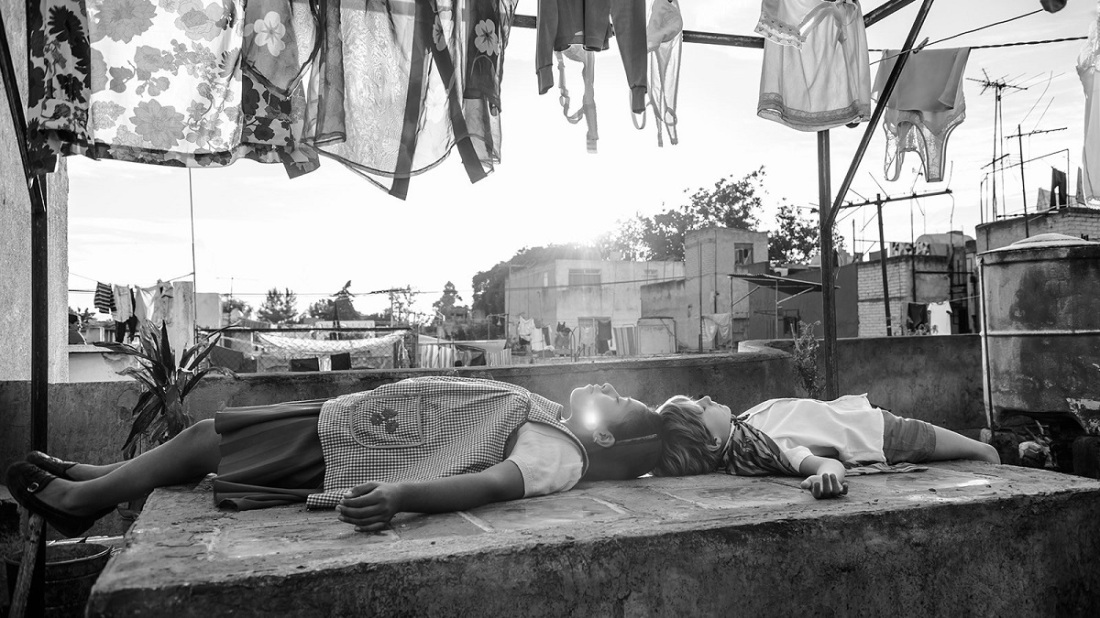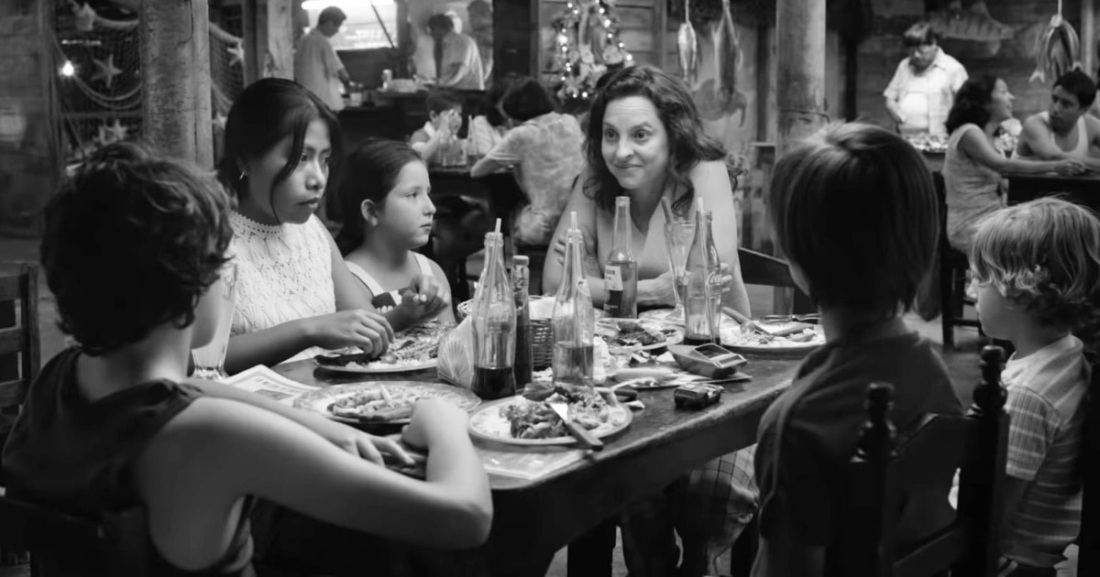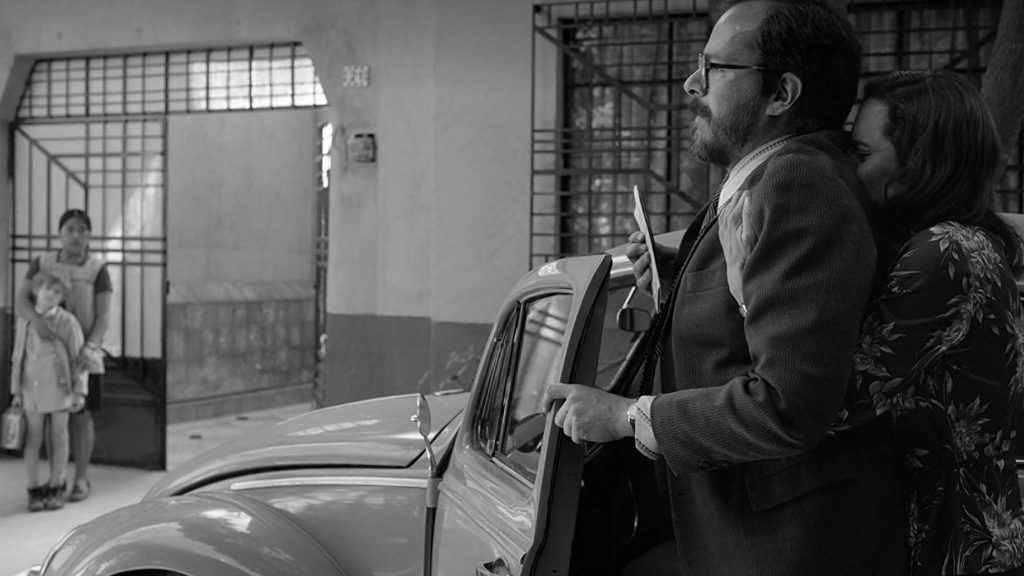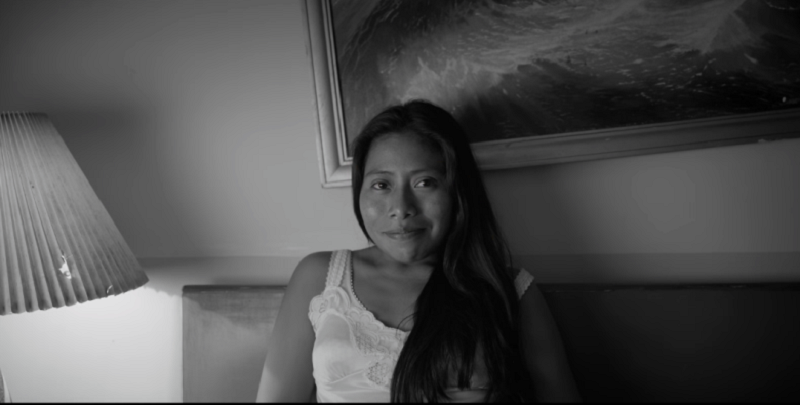**UPDATE: For more analysis of Roma, check out my Script Analysis post where I dissect the screenplay to determine the hidden themes and messages of the film!
Roma (2018) is the latest from Alfonso Cuaron, one of my favorite working directors. It stars Yalitza Aparicio as Cleo, a housekeeper for a middle-class family in 1970’s Mexico. The film has drawn serious accolades thus far and is a frontrunner for Best Picture already, despite not dropping officially on Netflix until next Friday. What is all the buzz about? *SPOILERS AHEAD!*

As 2018 stretched on, Roma gradually became one of my most anticipated films in quite some time. Hearing all the buzz out of festivals, enduring some of the less-than-stellar films that have come out this awards season, and looking back at some of Cuaron’s past work really got me in the mood for this film. I was willing to drive two hours away to the nearest cinema playing Roma in theaters, not only to get an earlier viewing experience but to avoid having to watch it for the first time on Netflix. Every once in a while a movie comes along that I just know I have to see on the big screen, lest I regret it later. I missed out on 2014’s Whiplash and 2016’s Moonlight in theaters and didn’t intend to miss out on this one as well. While I am happy that this film will be available to a wider audience thanks to Netflix, I lament the fact that so many are going to miss out on the theater experience with this one, because my god, what a gorgeous picture.
Cuaron is the master of the long take. Roma finds him taking this approach to the extreme, with several shots stretching on past a minute or more. Some might find this boring or overindulgent as certain moments linger longer than a traditional filmmaker might allow them to, but it’s a deliberate choice to allow us time to take in the moment and experience what he wants us to. It’s a risky conceit in today’s age as filmgoers’ attention spans shrink, especially in the age of Netflix as a bevy of other entertainment options exist to distract them. And it’s a shame that the vast majority of people will experience this one on the small screen, when if ever a movie existed to see in a theater, this is it. So I urge you, if you have the opportunity to see this in theaters, do so…and if you must watch it at home, do so without glancing at your phone.

If there was anything at all to criticize about the film, it would be that it is tedious. But in a way, Cuaron is using these moments to teach the audience how the movie is meant to be watched (similar to the pie eating scene in last year’s A Ghost Story). The prolonged shots without a cut catch us off-guard, make us lean in and pay closer attention, as though there’s something significant we’re missing. So later, when there ARE significant subtle things going on, we’re more attuned to it and are able to key in. The other thing long takes do for Roma is forcing us to stay in a moment and soak in all of its implications. The most heartbreaking scene of the movie comes when Cleo delivers a stillborn baby. Cuaron does not allow us to leave, forcing us to sit in agony and watch this horrible event happen before our eyes. In order for the moment to have full impact on us, we have to be there the whole way through, see it through Cleo’s eyes, understand the pain by living it ourselves. That’s the magic of what long takes can do.
As with Cuaron’s previous works (particularly Y Tu Mamá También and Children of Men), Roma has so much going on in the frame at all times. It’s like he crafts two separate moments and crams them together into a single scene, so that our eyes almost don’t know where to look. It’s an immersive technique that anchors us in the world more solidly and stimulated the senses. Like the abnormally-long take, such visual complexity engages us and makes the viewing experience an active one. It can elevate the emotion of a moment, making the characters feel small and insignificant compared to the epic scale of the world around them. It’s not every day that you see a grandiose battle sequence in a contained family drama (mostly due to budgetary constraints), but it works so well when done properly. We feel the same despair and hopelessness in a cold world that our protagonists do, while also drinking in the majesty of the world and the non-linear nature of real life.

The edits, few and far between as they may be, are often jarring and messy. Scenes transition from one to another abruptly, almost imperfectly, with mismatched audio and stark visual shifts. On first watch I found this to be a slightly annoying distraction, but upon further reflection it furthers the themes Cuaron is going for. He has described the film as a “memory piece”, his reflections on his own childhood upbringing. As such, the film takes on an almost vignette structure, like we’re watching a mishmash of separate events jammed together into a semi-coherent whole. We’re not necessarily meant to take in the film as one cohesive unit, but as a jumble of related thoughts, much as our own memories can build up a loose narrative of a past event but can never fully recreate the thing itself.
Simliar to the visual style, the complexities of the plot also compound tension and enhance character drama. As the story develops, two separate stories are occurring: the gradual separation of the parents, and Cleo becoming pregnant. Either one of these taken on its own would have made for a powerful story, and they could have occurred separately to let us focus fully on it. But having them chronologically-linked and competing for our sympathies is especially taxing on our emotions. Each major plot beat comes at the same time as another major shift in the other narrative. Cleo’s lover skips town just as the father leaves on his business trip. Cleo is rebuked by the father just as the mother discovers the father’s infidelity. And Cleo’s water breaking coincides with a massive, city-wide riot. Things are never easy for our characters, and all the chaos happening around them just makes their plight that much more compelling. It also serves as a bonding opportunity for the two primary women of the narrative, as both find themselves discarded by men and left to fend for themselves.

I also loved the way characterization is done non-verbally. Cuaron trusts the audience enough not to shove exposition down our throats, and he also knows how to use the visual medium to “show, not tell” us what we need to know. For instance, a brilliant thirty-second sequence of the family patriarch pulling his car into the driveway tells us everything we need to know about him before we even see his face. Similarly, Cleo’s status within the family is expressed through blocking and framing: she’s often low in the frame or relegated to the background. Despite the family’s insistence that she is an equal, we know that there is a subconscious barrier between them. It’s also a testament to the powerful physical acting, as facial expressions and mannerisms alone can carry a scene without needing on-the-nose dialogue to tell us what to feel.
The ending of the film best sums up the message and themes Cuaron is going for. As Cleo saves the two children from drowning in the ocean, she is embraced on the beach by the entire family, as though she is a member of the family herself. The film could have ended there, but it does not…we return to the house where Cleo falls back into the routine of caring after the home and family as a servant. Cuaron is clear on the fact that, while housemaids can be considered like family to the people they serve, there remains a clear barrier between the two and the hierarchy is always in place. This subconscious divide was a theme also explored in Y Tu Mamá También, where the two lead characters treat their housekeepers like shit almost without realizing it. The film is a love letter to housemaids, but one told with a more omniscient point of view to consider their side of the story. While he could have easily constructed the film to express how they are like family, he is careful to remain honest and accurate about the reality of the situation, which is that at the end of the day, they are still a subjugated group and one easy to forget we’re taking constant advantage of. That reads as far more sincere than any over-sentimental fare he could have gone for. The truth is far messier than fiction.

Conclusion
Roma is a film that takes its sweet time, but it is incredibly rewarding for patient filmgoers willing to pay attention. It’s easily the best film I’ve seen this year and deserves all the accolades it has received thus far. Cuaron could realistically be nominated for SIX Oscars this year as producer (in both Best Picture and Best Foreign Film), director, writer, cinematographer, and editor, and he will likely win at least two or three of them. It’s the first film of 2018 I’ve seen that I can call pure perfection. Please go see it in theaters if you can, but if you must see it on Netflix, prepare to pay close attention.
VERDICT: A+
-Austin Daniel
All image rights belong to Netflix.
15 thoughts on ““Roma” Film Review & Analysis”